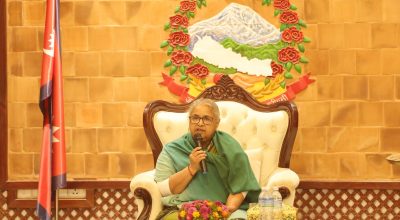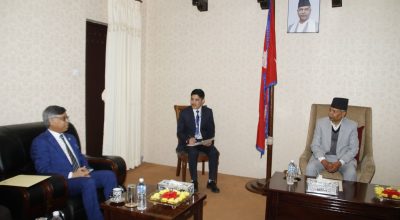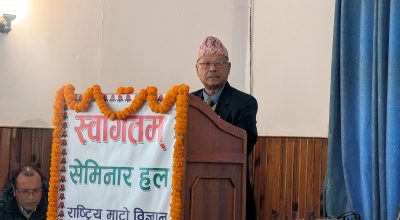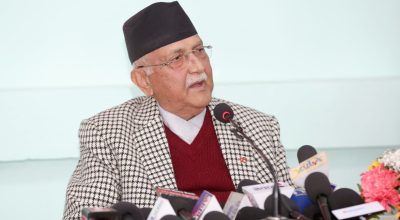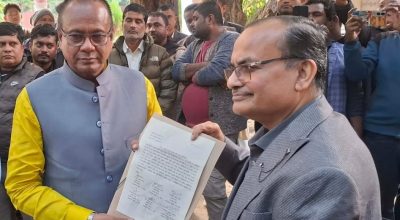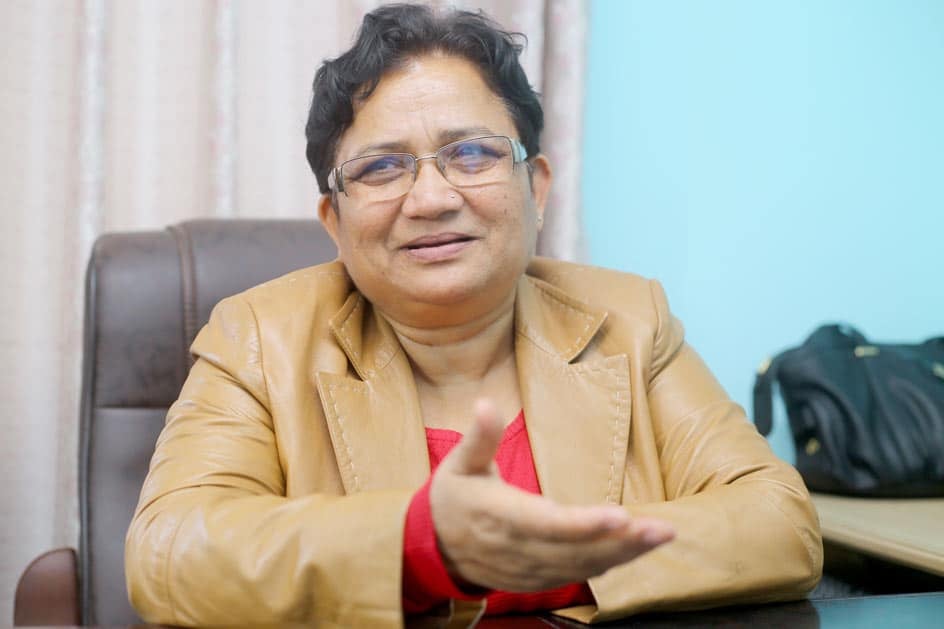
Kalika Khadka/RSS
Kathmandu : Minister for Energy, Water Resources and Irrigation, Pampha Bhusal, has viewed economic empowerment of women makes them able to speak freely and confidently.
“In the past, women used to express freely only in Teej festival, but now, voices can be raised for women rights throughout the years because we’ve done several political struggles,” she reminded while talking about women’s rights and Teej festival.
She expressed worry over growing cases of violence against women as murder and rape, which she argued is sheer social challenges to them. “During Teej, women can also raise voices against social evils and launch public awareness campaign,” Minister Bhusal underscored.
Minister Bhusal however said it was wrong trend in recent years to celebrate Teej festival in a prodigal manner. It is the festival of reconciliation among sisters, families and friends, she added.
Similarly, Nepali Congress leader Dr Dila Sangraula viewed Teej is the religious and cultural festival of Hindu women. “It is the festival of love and harmony. This festival fosters love among couples and family,” she said, adding that it can be observed by pointing out the need of economic empowerment of women.
She further said the social evils of the past as early marriage and oppression by mother-in-law are no more at present. We have now democratic republic system. Dr Sangraula urged the women not to be servile to their husbands as in the past.
Politburo member of the CPN UML, Sujita Shakya, also laid emphasis on socio-economic and cultural transformations of women in regards with celebration of Teej festival. “Why people are more worried more about food and ornaments in this festival,” she wondered.
According to her, creative and collective campaigns would be helpful to curb such maladies.
Secretary of the CPN (Unified Socialist), Ram Kumari Jhankri, said she had regarded Teej as the festival of national unity. Teej is the festival of identity, but it has lost its traditional aura, she said, expressing happiness that this is observed even in the international countries and among the people from other faiths.





